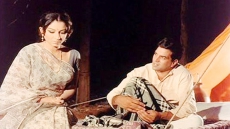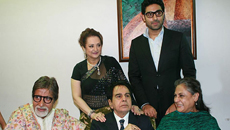TORONTO — When the Oscars diversity debate erupted earlier this year, filmmaker Jenni Gold noticed one minority group was conspicuously absent from the conversation.
"They would talk about women, they would talk about ethnicity, they would talk about sexual preference — but they wouldn't talk about disability," says the writer-director.
"It was like the forgotten group."
Gold looks at the under-representation of people with disabilities and deaf people in media and onscreen in her star-packed documentary "CinemAbility," which is screening at Toronto's inaugural ReelAbilities Film Festival that runs Thursday through May 19.
Billed as the first of its kind in Canada, the fest has films by, or about, the experiences of people with disabilities.
The fest also has free family programs and is "accessible in every way," says artistic director Liviya Mendelsohn, noting all the venues are wheelchair accessible.
The screenings will also have open captioning and be sensory friendly with lower sound and some light and space for people who process differently. Several films are also accompanied by audio description for those who are blind or low-vision.
Panel discussions will be supplemented by American sign language and organizers are taking access requests individually to try to accommodate all.
ReelAbilities got started at a Jewish community centre in New York in 2007 and has since grown to 13 cities in the U.S.
Mendelsohn says the field of films available for such a fest is getting bigger.
"The ReelAbilities national office in New York is now taking submissions and they're getting lots and lots of submissions each year," she says.
"There's really a bit of a moment happening around disability and film."
Of course, as Gold's film points out, there's still a long way to go.
Featuring interviews with experts and stars including Jamie Foxx, Ben Affleck and Marlee Matlin, "CinemAbility" looks at how disability and people of other minority groups have been treated in the media and onscreen. It also examines the power the media has to influence society and society's understanding of any particular group.
"The employment rate of people with disabilities is the worst of all, it's incredibly low, and we're talking about people that are capable of work," says Gold.
"It's more looking at what someone can do and not pre-judging them about what they can't do because of what you think.... When you add people of different types to your work environment, it leads to a more rounded experience, new ideas. It's a better fabric."
Gold has muscular dystrophy and uses a power wheelchair. She says she's had to overcome prejudices and create opportunities for herself in Hollywood.
"As a female director, I also know that the numbers of female directors working are appallingly low as well — so when you add a female director who uses a wheelchair, you have to create your own avenues."
Gold notes people with disabilities offer a special "artistic depth" in the entertainment world.
"I tell people that I think I'm a better director because I have a disability," says the founder of Gold Pictures, who also does narrative feature films.
"Growing up with muscular dystrophy, I couldn't always do something myself so I'd have to direct other people to do what I wanted. And what does a director do? They get actors to do what they want."
Gold has an infectious sense of humour when talking about such issues and purposely injected that lighthearted approach into her film.
On the misconception that someone with her condition might get tired on a film set, she quips: "I get tired less than everybody else because I'm sitting down all day. I'm not having to run around."
She also notes with a laugh: "I tell them, 'I get to set at 12 miles an hour, my chair can. I get on set quicker.'"




